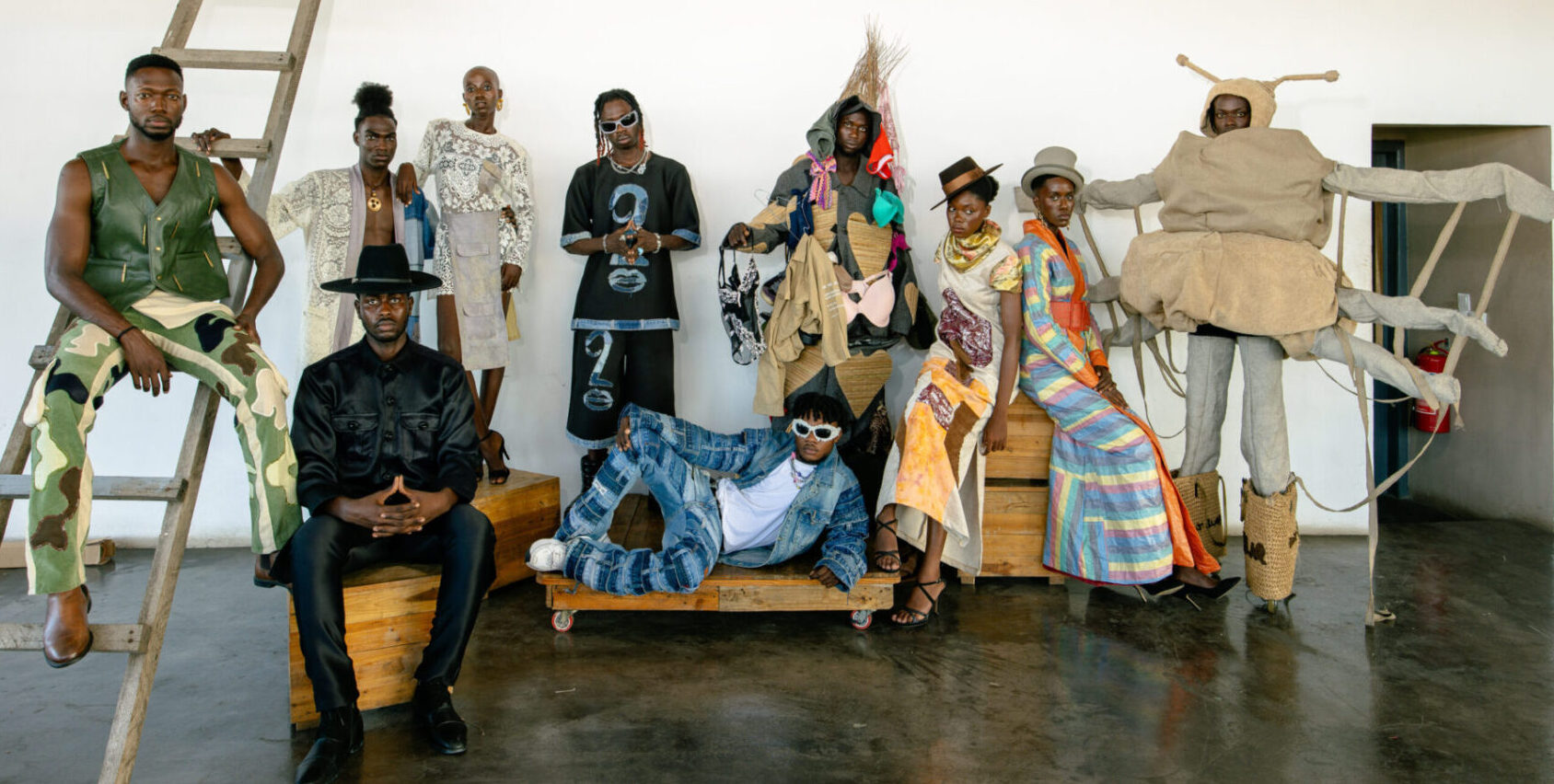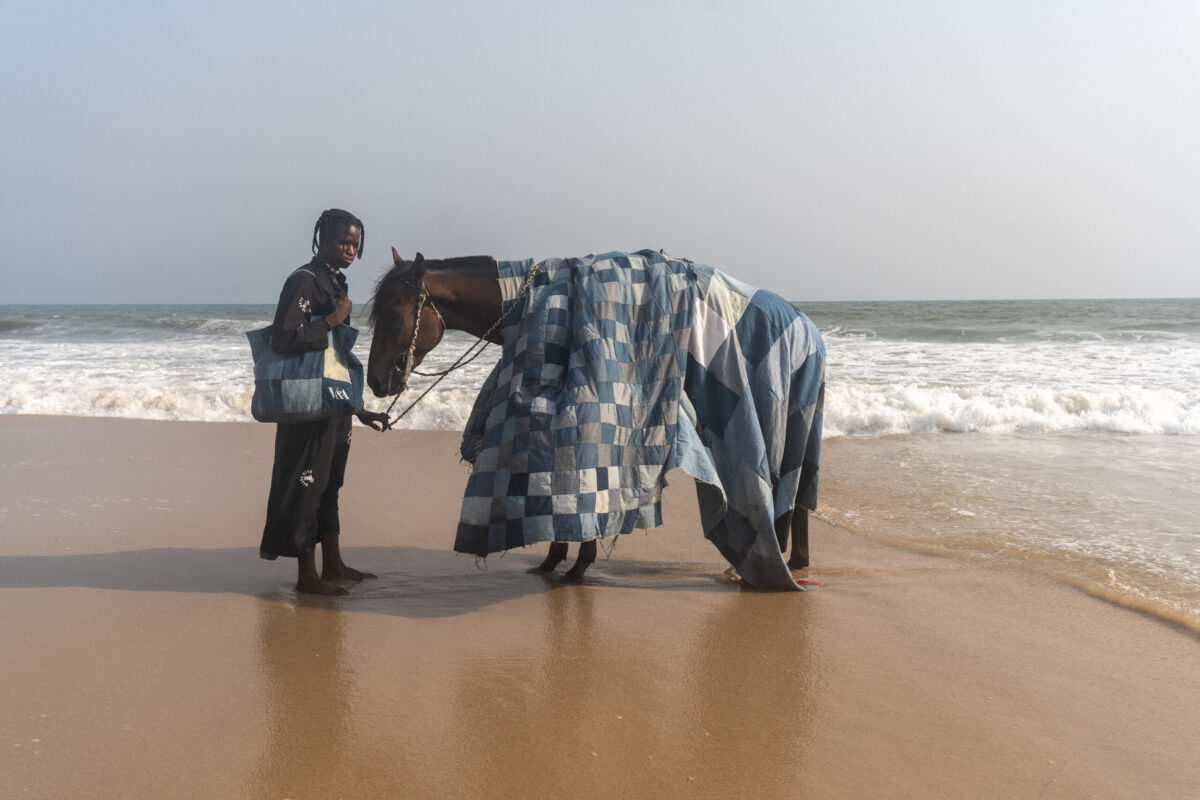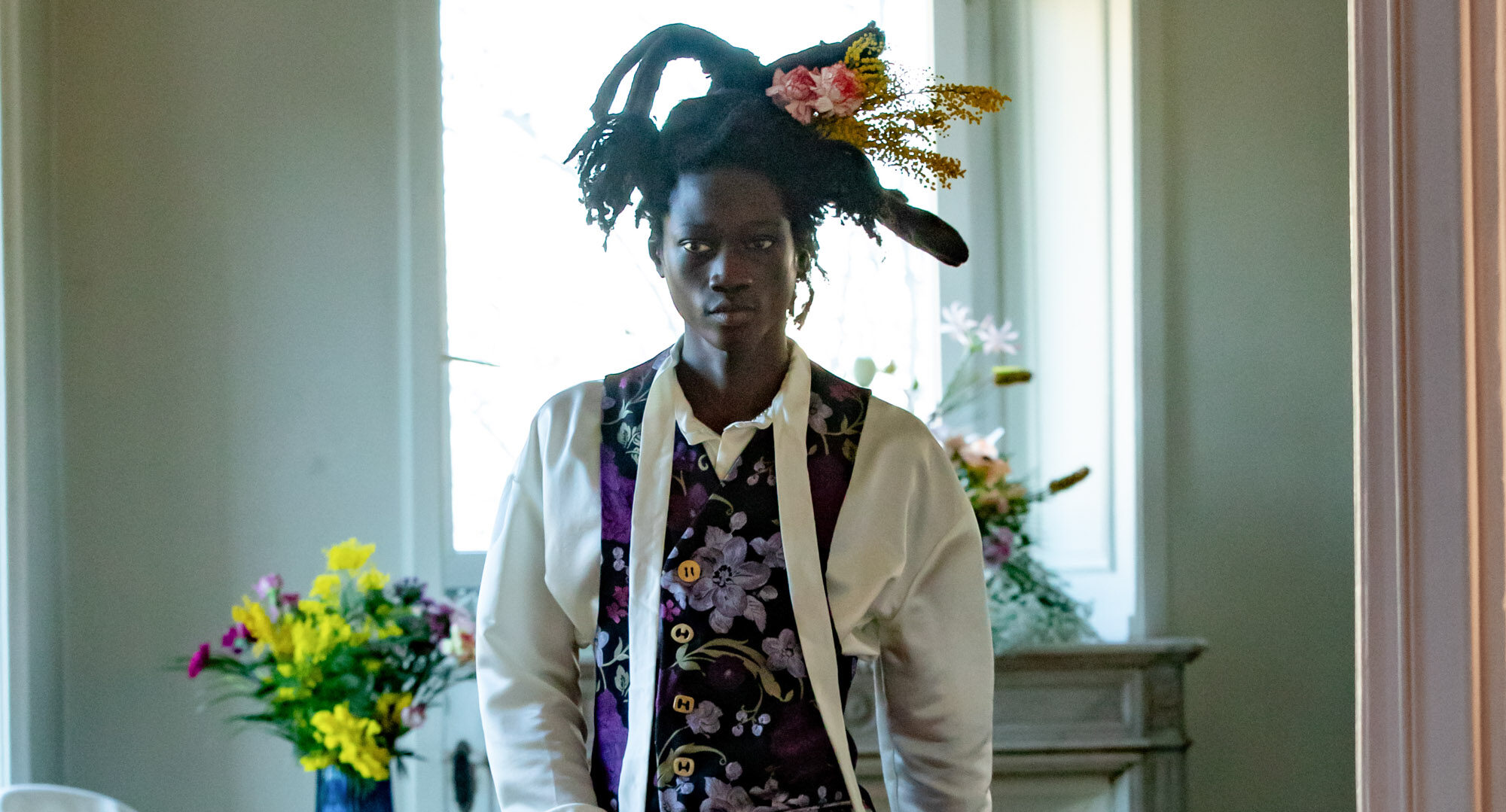“For me, taking what the West sends to Africa as trash and selling it around the world as treasure is a militant act,” asserts Amah Ayivi, the Togolese visionary and entrepreneur behind Paris concept store, Marché Noir. “From the very beginning, culture and sustainability have been at the heart of my vision. From vintage to craftwork to creative direction, it all stems from these pillars.”
If you know Paris, you’ll recognise Ayivi. Cutting a fine dash through Le Marais in his signature batakali tunic, a skull cap on his head and hands encrusted in silver rings, his presence is hard to miss. He originally moved here from Lomé as a teenager and began thrifting as a way to develop his unique style. He went on to work as a casting director and ran an African restaurant before landing at Le Comptoir Général in 2012. He soon established Marché Noir at this legendary venue, selling high quality army surplus, workwear and antique items all sourced directly from Togo’s second-hand markets.
“Second-hand in Lomé is wild. We have tonnes of clothes arriving every day. Twice a week a truck comes to collect the waste and burn it but some of it still ends up in the sea or in villages, where it damages the fields,” he says. “The solution is not to stop the trade between Togo and the West because there is an ecosystem that has built up around it but we do need better control of these imports.” Ayivi does his part to make a difference through his expert upcycling trips but Togo is far more than just a sourcing location for him. It’s his heart. Lesser known than many of its neighbouring countries in West Africa, he’s dedicated to raising its international prestige. “I would love the world to know that Togo is a peaceful place. A place where you can breathe and meet nice people. A place where you can explore from the south to the north and discover so much beauty.”
“African elegance comes from our soul. It’s something we were bequeathed from our elders”
He’s always found an eager audience for this finely thrifted threads back in Paris. Marché Noir evolved into a stunning boutique in 2016 and, after a series of pop-ups, recently reopened in Le Marais where it’s become a treasure trove for one-of-a-kind finds, artisanal textiles and custom accessories.
“The store acts as a meeting spot. It’s where people come to share with others from around the world and become part of the Marché Noir movement.” It’s also where you can buy yourself a batakali, tailored in Ghana from kenté cloth, which will style effortlessly with any of the hard-wearing leather and denim classics on the rails of the store. “My batakali collections were inspired by the former Ghanaian president Jerry Rawlings. He used to wear this traditional attire to show off his culture when he travelled. I decided to design my own take on the batakali because it speaks to the idea of legacy and sustainability.”

Beyond design and retail, Ayivi runs a style agency with Sam Lambert and Shaka Maidoh of Art Comes First, working with brands who want a piece of their je ne sais quoi. Together they’ve also curated exhibitions everywhere from Stockholm and Abidjan, and form part of a loose collective of like-minded menswear empresarios including Ouigi Theodore (Brooklyn Circus), Armando Cabral and Wanda Lephoto, who believe in dedication to handcraftsmanship and sartorial excellence. “Elegance comes from our souls as Africans. It’s something we were bequeathed from our elders, it’s something we don’t have to force,” he reflects. “Just look at the archive photographs of Malick Sidibé and Seydou Keïta and the way those people are posing without posing. It’s just natural for us.”
It’s no wonder then that the global fashion industry is increasingly turning to sustainability mavericks such as Ayivi to learn how to mend their ways. And he leads by example every step of the way. “The industry is going to have to change because we are facing an ecological and humanitarian disaster. This change must come from the top – from governments and the big fashion groups. But consumers can also take the power back because if we all bought consciously and changed our habits by forgetting the brainwashing on seasonal collections, then the brands would be forced to slow down their production.” Now wouldn’t that be the most militant act of all?




